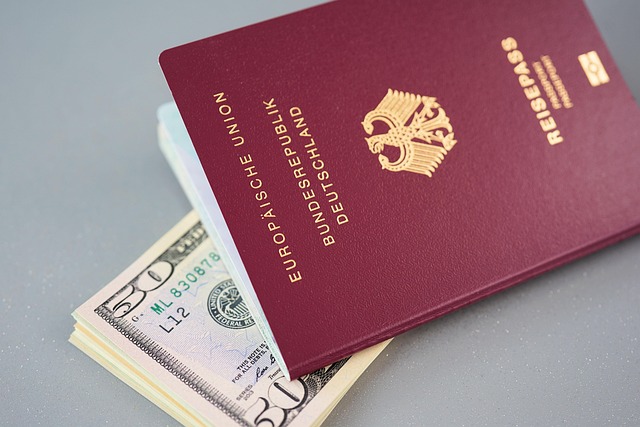Transitioning from research to clinical roles in international settings
Moving from a research-focused psychology role into clinical practice abroad involves navigating licensure, credentialing, and varied regulations while building cultural competence. This article outlines practical steps for assessment adaptation, telehealth considerations, relocation logistics including visa processes, and ethical and interviewing practices to support the transition.

Shifting from research into clinical practice in an international setting requires both professional reframing and practical preparation. Beyond transferring theoretical knowledge, clinicians must adapt assessment approaches, learn local regulations around licensure and credentialing, and consider how telehealth and in-person therapy differ across borders. This article focuses on pragmatic steps to prepare for relocation, manage visa and credentialing requirements, and maintain ethical standards in cross-cultural clinical work. This article is for informational purposes only and should not be considered medical advice. Please consult a qualified healthcare professional for personalized guidance and treatment.
How does psychology research inform clinical practice?
Research experience provides a strong foundation in evidence-based methods, assessment design, and outcome measurement that can enrich clinical work. Familiarity with study design and statistics improves diagnostic reasoning and enables the clinician to select validated assessment tools and interpret psychometric results more critically. When transitioning to clinical roles, emphasize transferable skills such as case formulation, data-driven treatment planning, and continuous outcome monitoring. Framing research experience in terms of how it supports reliable assessment and intervention helps during interviewing and when communicating with hiring or credentialing bodies.
What licensure and credentialing steps are needed?
Licensure and credentialing vary widely by country and sometimes by region within countries. Typical steps include verifying degree equivalency, submitting transcripts and supervised practice documentation, passing local licensing exams, and completing background checks. Some countries require supervised clinical hours under a locally licensed clinician before independent practice. Begin by contacting local regulatory boards or national psychology associations to identify specific documentation and timelines. Early planning helps avoid delays in relocation and ensures that your clinical scope aligns with local regulations.
How do international regulations and visas affect relocation?
Immigration rules and professional regulations often run on separate timelines and may require different sets of documentation. Work visas, residency permits, and recognition of foreign qualifications can be time-consuming; employers sometimes assist but not always. Research whether temporary permits for supervised practice exist and whether you must obtain local credential verification or apostilles for academic documents. When preparing relocation plans, map out anticipated processing times and required paperwork for both professional credentialing and immigration to reduce gaps in employment eligibility.
How to adapt assessment and therapy across cultures?
Assessment instruments and therapeutic approaches developed in one cultural context may not translate directly to another. Adapting practice involves selecting culturally validated instruments or using locally normative data when available, being mindful of language nuances, and adjusting intervention strategies for cultural relevance. Cultural competence also includes understanding local help-seeking behaviors, stigma, family roles, and explanatory models of distress. Seeking cultural consultation, supervision from local clinicians, or additional training can improve assessment accuracy and therapeutic alliance in new settings.
Can telehealth support cross-border clinical work?
Telehealth can extend access to supervision and to continuity of care, especially during relocation, but it raises regulatory and ethical questions. Licensing often restricts where a clinician may practice remotely; some jurisdictions permit cross-border telehealth under specific conditions, while others require local licensure. Data protection, informed consent, and emergency protocols must comply with both the clinician’s home country standards and the client’s local regulations. Review telehealth regulations early, ensure secure platforms for therapy, and clarify jurisdictional limits during interviewing and client intake.
Interviewing, ethics, and compensation considerations
During interviewing for clinical roles, present research competencies as clinical assets—like assessment design and outcome evaluation—while demonstrating commitment to ongoing clinical supervision and cultural learning. Ethical practice remains central: maintain confidentiality, follow mandatory reporting timelines that apply locally, and seek regular ethics consultation when laws differ from prior practice. Compensation structures vary by setting (private practice, NGOs, hospitals, academic clinics) and are often dependent on local cost-of-living and funding sources; avoid stating specific salary figures and instead discuss typical contract elements, benefits, supervision provisions, and expectations for caseload and paperwork.
In conclusion, moving from research into clinical roles internationally is a multi-step process that combines professional retraining, careful planning for licensure and visas, cultural and assessment adaptation, telehealth compliance, and clear discussion of ethical and compensation frameworks. Preparing documentation, contacting regulatory bodies early, seeking local mentorship or supervision, and learning culturally informed assessment and intervention methods can smooth the transition while preserving high standards of clinical care.





